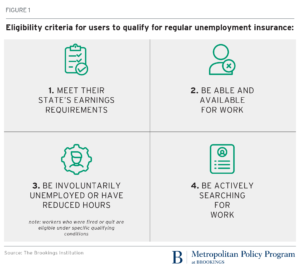Companies thrive on a combination of instinct, experience and expertise. While instinct tells you whether to put a project proposal on your desk, it is your business skills that determine the income generated from the work performed. Skills are the very reason why there are multiple career paths. And as we say, even more roles are being created to respond aggressively to the flow of new and different demands.
Everyone has skills in one form or another, and conscientious workers know that mastering new skills and working for hire are parallel events. In other words, self-improvement, whether at work or through targeted retraining and / or professional development, helps to build competence in the workplace. In the future, companies can hire appropriate and experienced employees.
But it’s not just the benefits the business gets. It’s about letting your employees reach their full potential by shaping a learning curve. Rather than pushing them aside by the company or giving them jobs they are not ready for, knowing which skills are worth investing in and in turn mastering them is the key to achieving business success.
Here are four essential skills to improve as you grow.
- People management
It’s one thing to manage people and it’s completely different to lead them, given that no two leadership styles are the same. There remains a common belief among managers that management of departmental teams will come “naturally” when the time is right. However, there is evidence to the contrary, suggesting that skills in managing people should be a priority, not an afterthought.
On the one hand, well-managed employees perform better, give them to the company that hired them and pay in advance by taking new recruits under your wing. And on the other hand, such managers know the pulse of the team and can track failures or problems with individual members in weekly, monthly, or even annual reviews.
Managing project schedules and people is easier when you know how resource management software works. On the one hand, it offers unrivaled visibility into your team’s work. And the more you see, the better you can find the skills available and prioritize them. In addition to ensuring that the same project is not backed up twice, you can prevent tasks from conflicting with each other and ensure that every available hour is recorded. At the end of the day, the true capabilities of your workforce deliver the optimal workload.
- Communication and collaboration
Communication is not only talking, but also listening. And a strong communicator has an innate ability to bridge gaps between senior management and teams. Change starts with acceptance, but how can your teams remain productive if they are not receiving updates that impact their roles, responsibilities, and development within the company?
With the move to flexible working hours, project teams are now culturally and geographically diverse. Keeping communication lines in different time zones creates expectations and allows teams to catch up more efficiently. What’s more, it prevents the number of rework cycles and allows your employees to focus instead on critical, time-consuming tasks.
This facilitates team building and creates a culture of transparency in teams. As long as team interactions are streamlined, participants stay on top of work done versus pending work and can reach the desired milestones. As a skill acquired best over the years, working on your communication skills allows you to receive and give information.
- Cash flow management
Cash flow includes calculating the various costs of an enterprise, which include the alternative costs and costs of operating, logistics, labor, materials and training, which requires you to manage your finances by estimating these costs. You can then predict which areas will be at risk of overflow.
The audit depends on the criticized data as well as on expert judgment. This will help you identify discrepancies and keep track of how money flows in and out. Cash flow management allows not only to measure financial results for the year, but also to analyze the impact of fiscal changes on business income in the future.
Mastering cash flow management creates negative working capital that funds innovation in products. In other words, it ensures that payments are made in advance and prevents you from borrowing in excess of your funds.
Some of the best cash flow management practices include a credit check to weed out unsatisfactory scores, quickly issue invoices, and offer a cash on delivery option to avoid slow paying customers.
- Problem solving
In an economy where there are fluctuations in the work and skills needed to manage technically charged projects, it is better to make educated guesses rather than speculative ones. Original thinkers are what employers look for when hiring, given that when the reins of power are handed over, your successor must be able to run the business in times of uncertainty.
It is up to the manager to go through the red flags and determine their severity, the frequency of occurrence and why they persist. The manager who touches the base with his peers, stakeholders and teams can make informed decisions taking competing interests into account. Problem solving begins with identifying external and internal threats and their root causes. Consequently, a contingency plan can be created to mitigate the long-term impact on the organization.
As tough as it may seem to put out fires, you don’t have to do all the work yourself. Everyone has a knack for problem solving, which means you need to be able to recognize and connect with employees who can think on their own feet. They can help you plan and prevent the re-emergence of old and new problems.

























